Recently a theatre colleague came to me with a proposal. She was in possession of her Grandmamére’s wedding gown from 1949 and wanted to use it to make her own. With full permission of family members (and having different proportions than the gown’s previous owners) it needed to be re-made into something that suited her. I love a challenge like this, and loved that she wanted to wear something with family history for her big day. The gown was handmade by her great grandmother (for her daughter).
It was then worn again by her daughter (my bride to be’s mother) in 1980.
Being the preservationist that I am, I of course documented the original dress in as much detail as I could. Most of the material is a stiff satin, with a delicate sheer neck panel and covered buttons at the back neck, and on both sleeves.
The skirt was made up of six panels – two in the back and four in the front, gathered into the bodice. The hemline was draped higher in the centre front which graduated into a short train shape in the back.
The front neckline had lovely scalloped detailing with the sheer mesh hand tacked behind it.
There is a side zipper and a short row of buttons at the back neck, so I wondered if the brides had to get into it before getting their hair done, since it would have had to go over the head.
Did the original seamstress have to cover all 18 buttons by hand?
I love the construction details such as handmade satin shoulder pads (small satin pillows – not the extreme ones), tiny darts at the elbows (this is before spandex was in everything) and piping in the waist seam.
The sleeve cuffs have lovely V shape over the top of the hand, and one had a single strap holder pinned to it as the second bride’s “something blue”.
Lots of time and love went into the finishing, with hand stitches tacking down all the facings and sheer neck panel from the inside.
Inside the skirt I found 2 loops which looked like they would be used for pulling up the train, but couldn’t figure out how they were used as there was no apparent method of attaching them to anything.
I love the simple overall style with interesting details and a beautiful line. It’s a reflection of the time it was made – post WWII modesty with a hint of the more voluminous styles to come in the fuller skirt and gathered waist.
Stay tuned for the “After” transformation!
~Heather
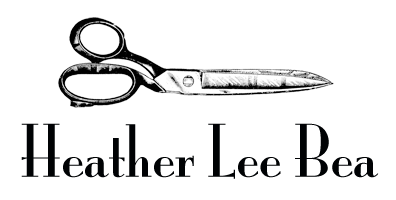

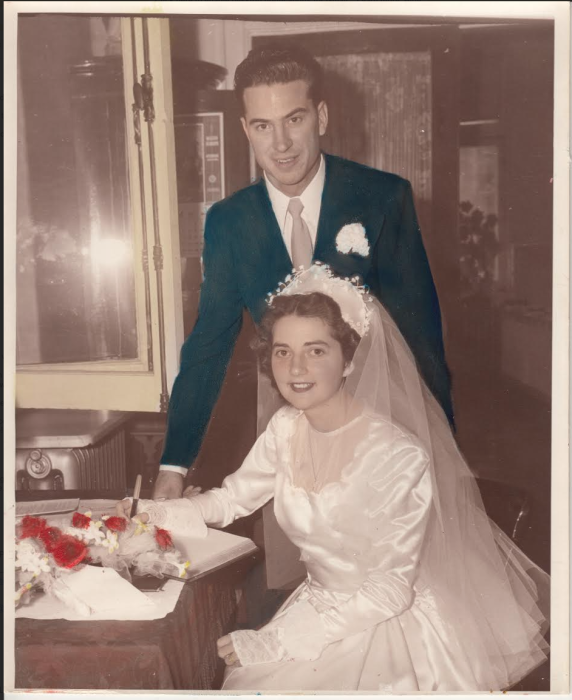
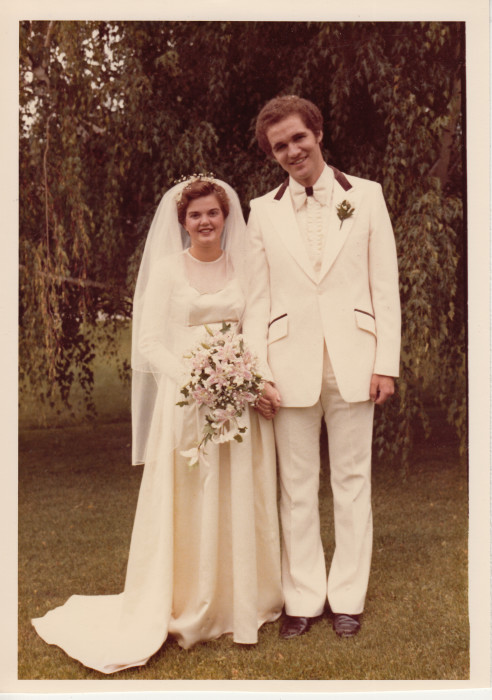
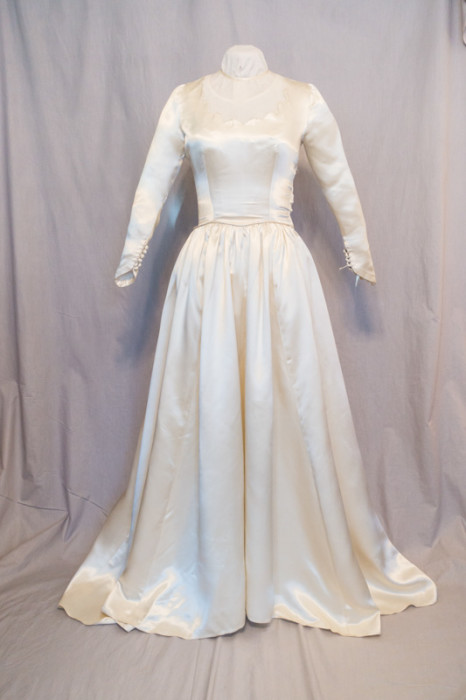
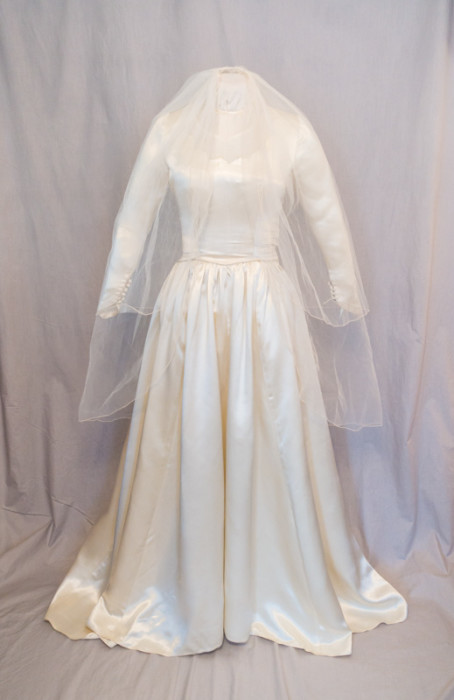
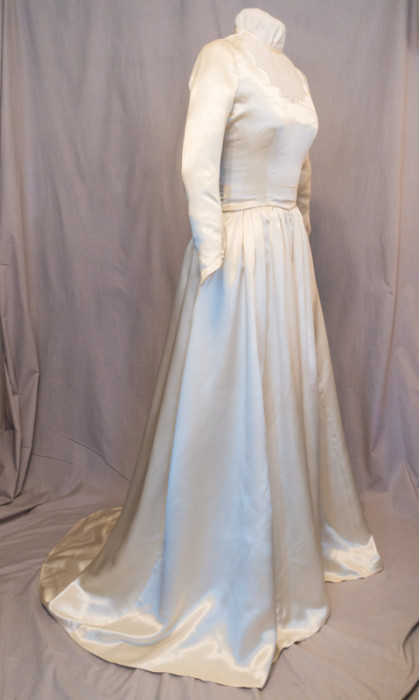
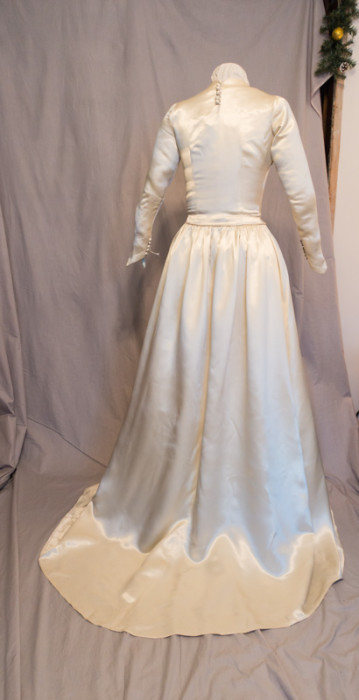
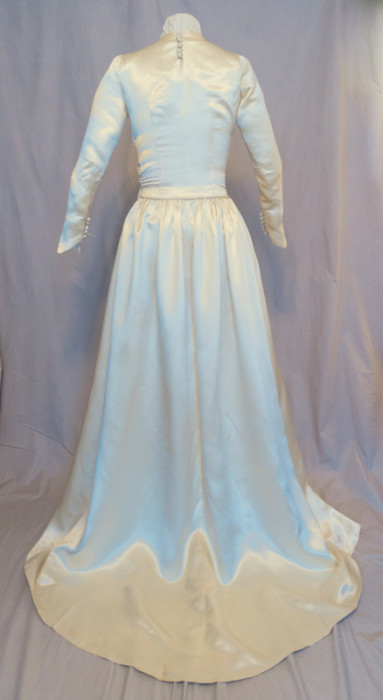
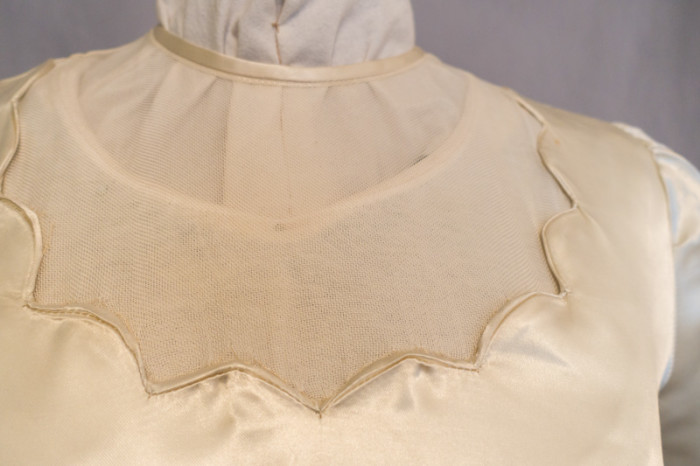
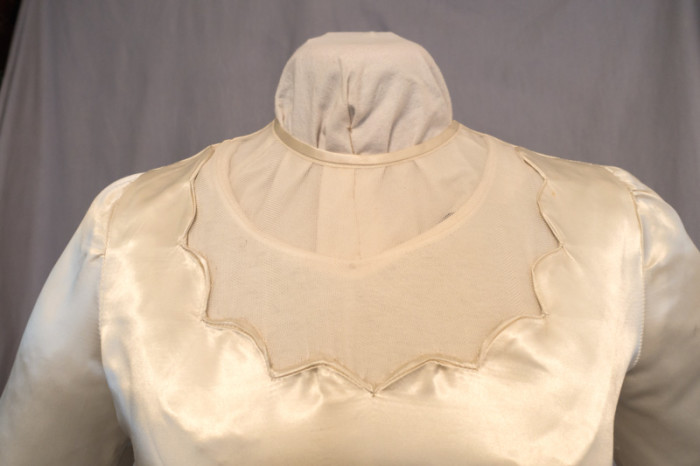
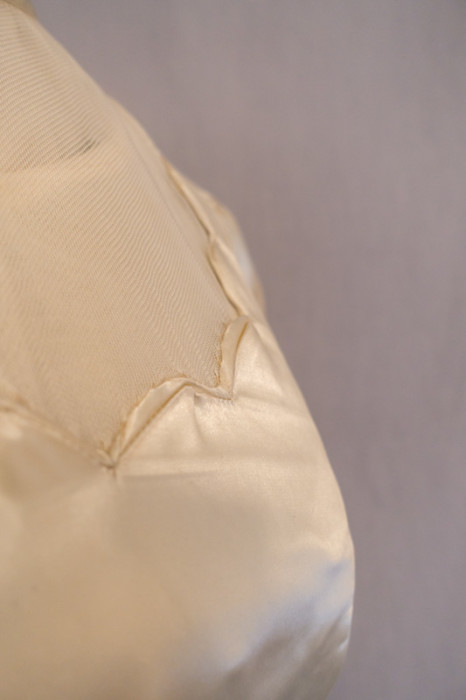
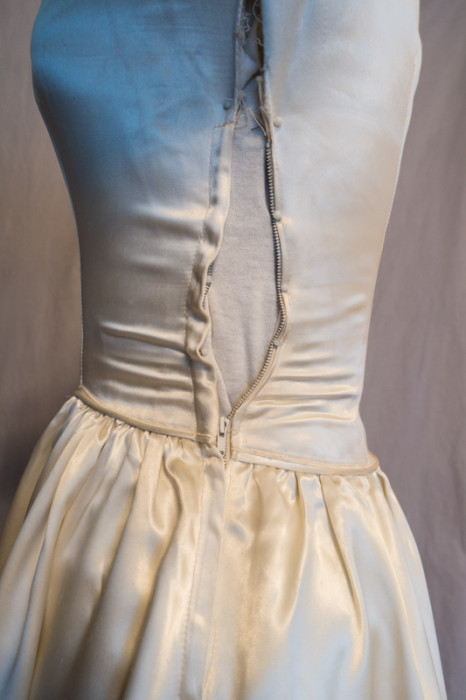
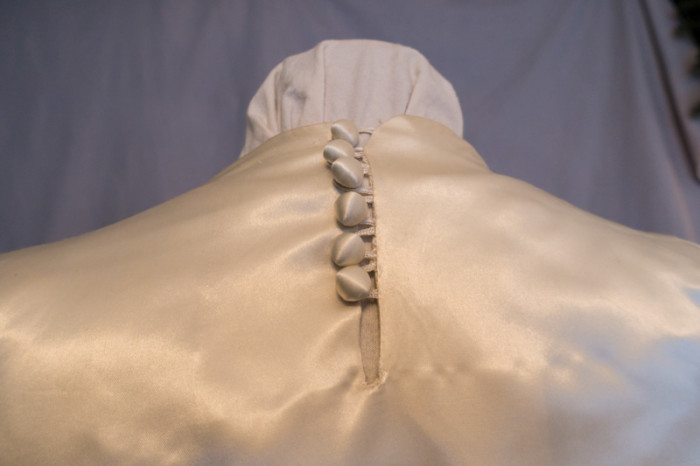
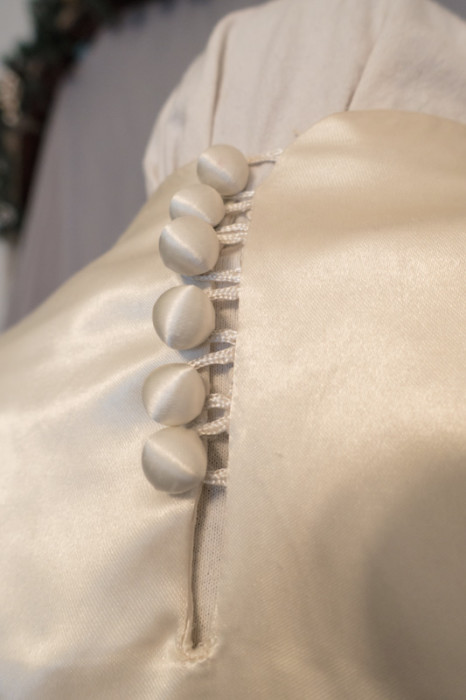
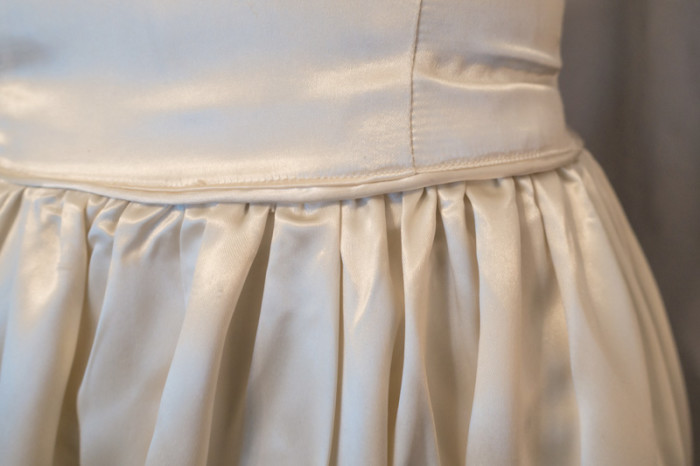
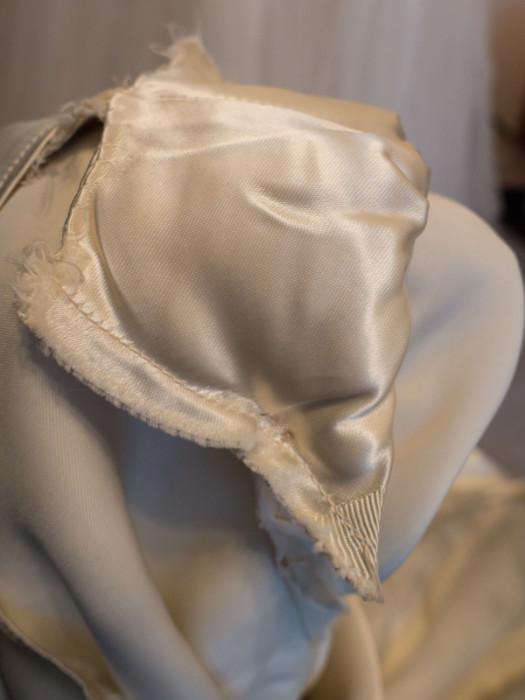
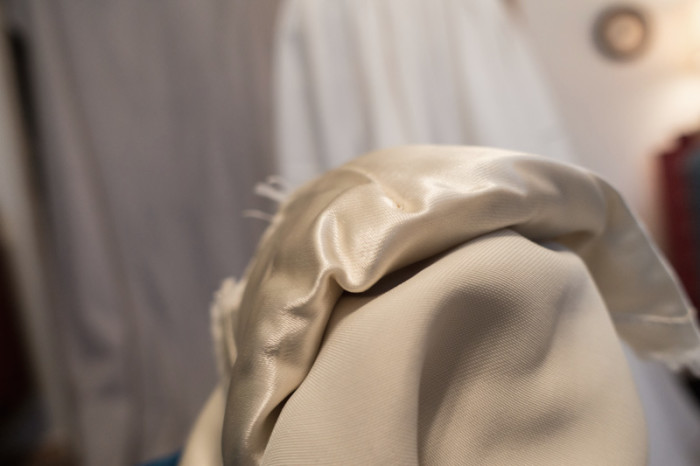
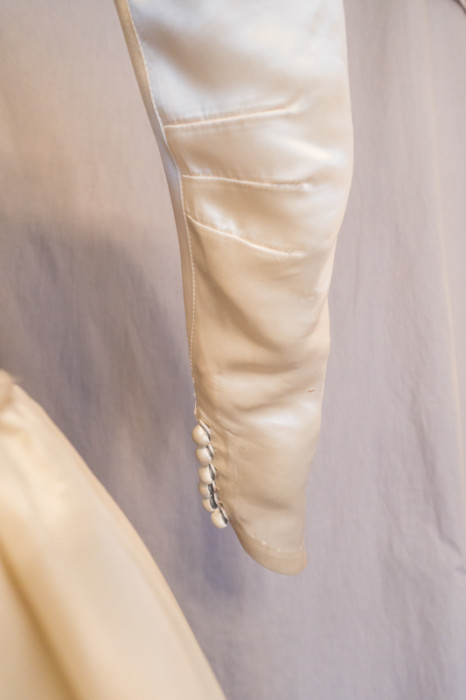
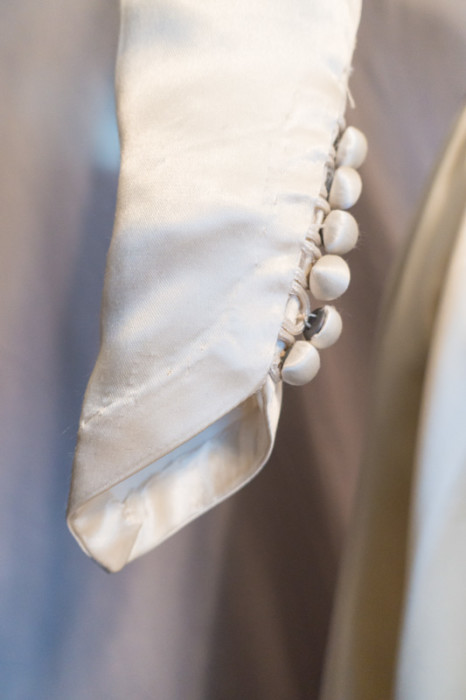
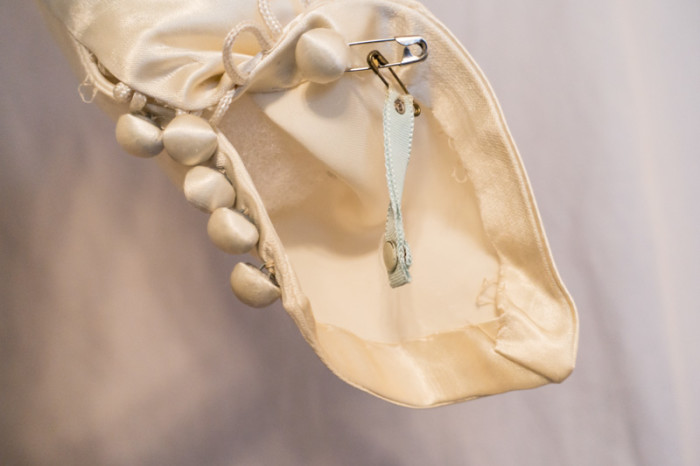
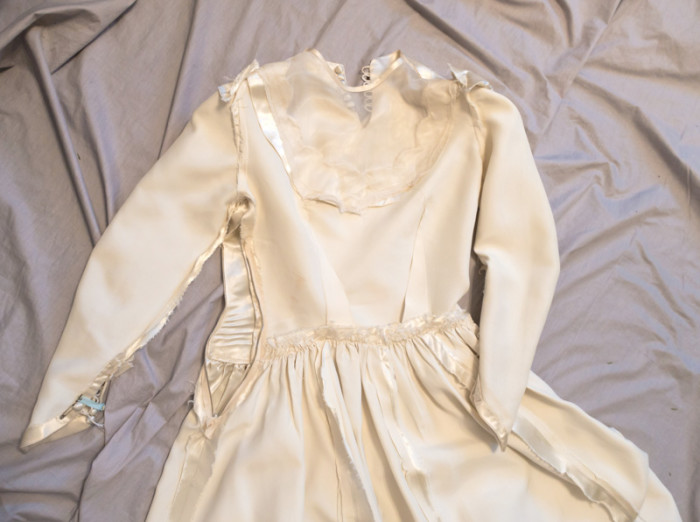
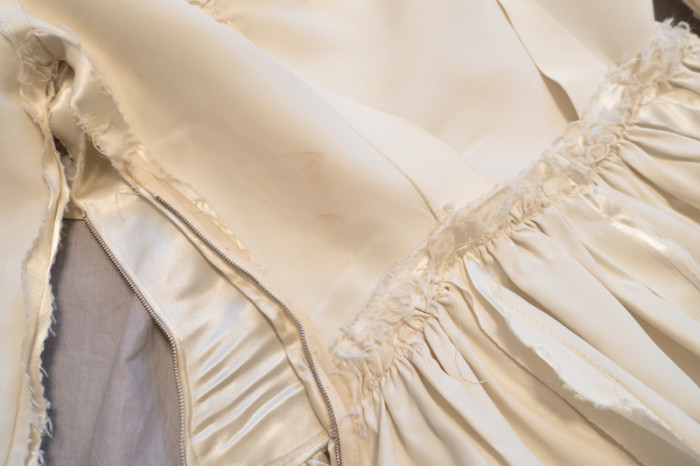
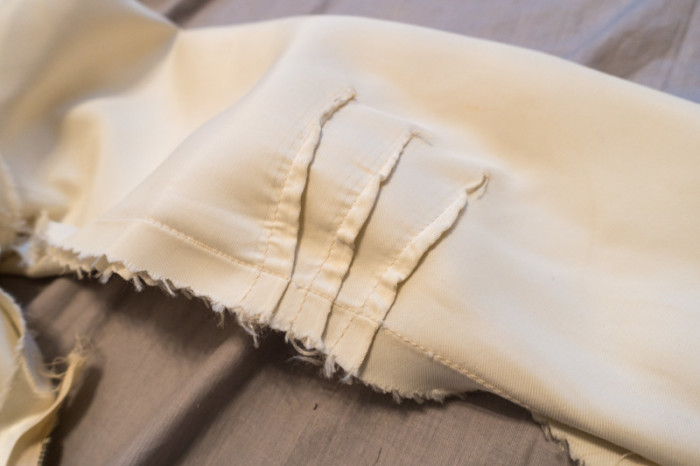
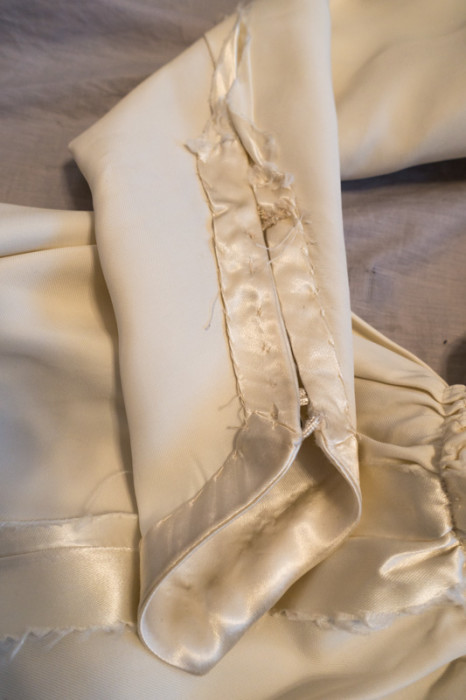
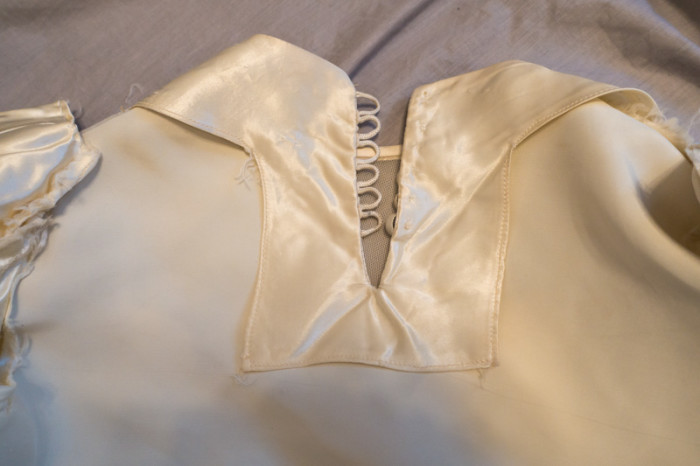
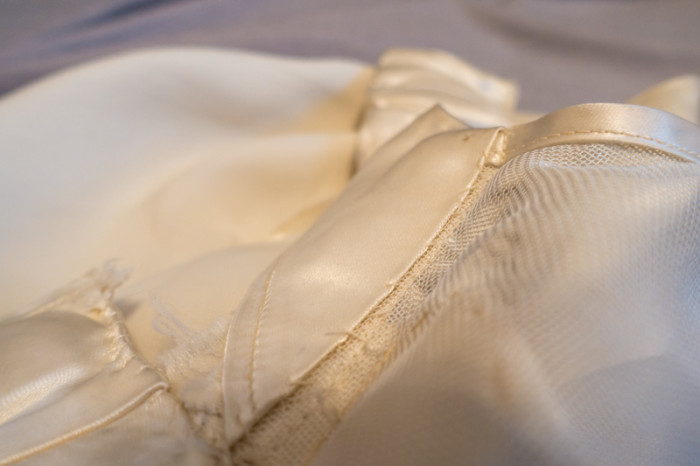
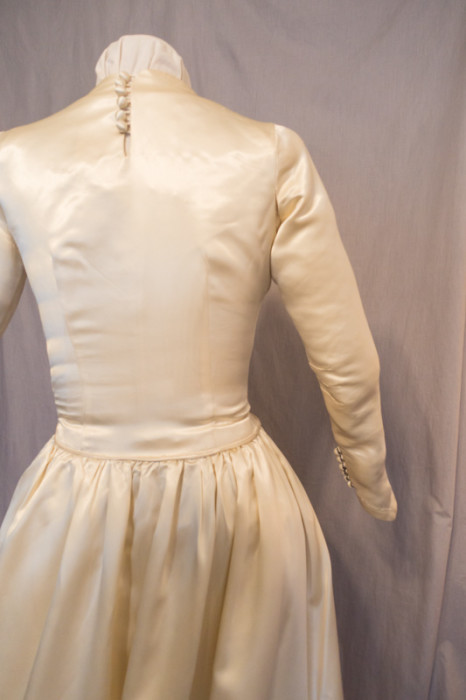
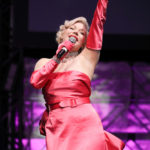
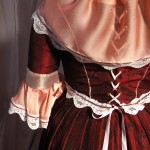

Pingback: Vicki
Pingback: Emileigh
Pingback: Heather Lee Bea
Pingback: Angie
Pingback: Make Do and Mend: 1940s Wedding Gown Transformation Part 2 | Heather Lee Bea